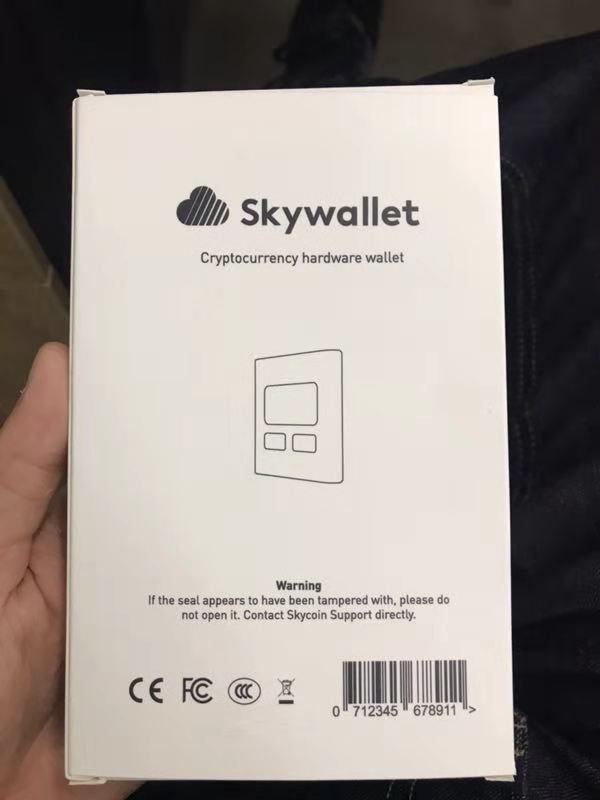
In a world where the prices of digital assets have been falling precipitously in the cryptocurrency market without a logical end in sight, projects laying off their developers and ultimately a lot of these projects packing it up completely, it's been series of development upon development with the Skycoin team.

After commencement the of the Skywire testnet, completion of the CX programming language book, Launch of the Android and IOS mobile wallet, they have relentlessly followed it up with the production of a cold hardware wallet that is finally ready for shipping in January of 2019.
A cryptocurrency wallet is just like a bank account, which is typically used to store, receive and send your digital currency to another wallet account or use it for the shopping purpose. Whether you want to trade in cryptocurrencies or want to have them as your asset, you must need to have a wallet account.
As you know that the cryptocurrencies are not registered under the law of any country. So, you have to be very careful when you are choosing a wallet for your digital currency. Because if you choose the wrong wallet for your cryptocurrencies, you may lose all of your money in no time. Spending time getting an understanding of different Cryptocurrency wallets is important to protect yourself from the scam and fraud.
There are five types of digital storage available for your use: online, mobile, desktop, hardware and paper wallets.
For the purpose of this discourse, the emphasis is on a hardware wallet.
Hardware wallets store users private keys on a device, typically a USB drive. They are able to make online transactions. However, most of the time they are offline and that is one of their strengths. Various manufacturers make hardware wallets compatible with different web interfaces. Therefore, complete characteristics depend on wallets integrations. Hardware storage is also convenient because of its ability to send and receive currencies by merely plugging them into the Internet-enabled devices and authorizing yourself.
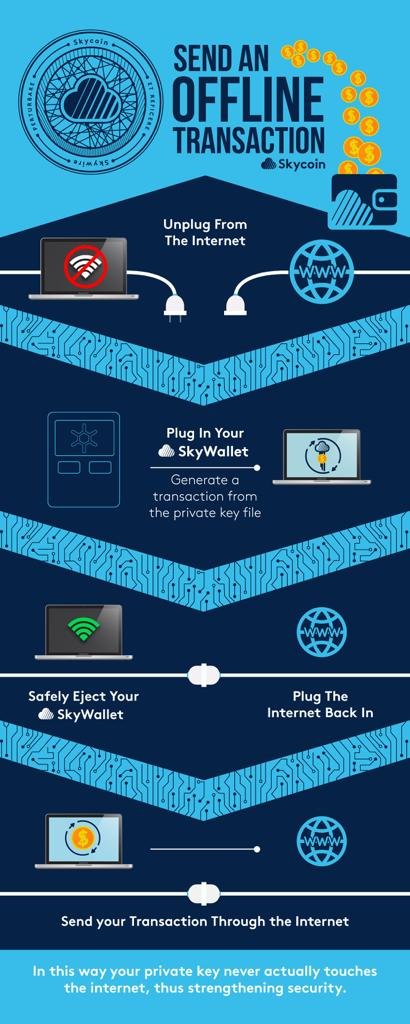
Hardware wallets also require a physical interaction with the device to confirm sending transactions. So even if someone gained remote access to your computer during the brief period of time that your wallet was connected, they couldn't take money out of it without somehow tricking you into clicking "confirm."
Therefore, hardware wallet is the most expensive, but also one of the safest options of keeping your cryptocurrencies.
WHY DON’T I KEEP MY DIGITAL ASSETS ON EXCHANGES
While it is convenient to buy and sell your cryptocurrencies on various exchanges, it is never recommended to leave them there since these are centralized businesses and all the private keys and coins are stored in one place.
Exchanges can be hacked or closed down without notice. In addition, some exchanges won’t give you your fair share of a coin in case of hardfork and in case of Skycoin; you won't get the Coinhours that accrue to you by holding Skycoin in an exchange.
Privacy is one major problem with keeping your assets on the exchange. Hackers can use malware to steal your keys and seed phrase and could potentially also leave your data open for those interested in your private details kept on your device. Additionally, Bitcoin is not anonymous. It is considered pseudo-anonymous. Bitcoin addresses are random and not fixed to the identity of users. However, transactions are kept in the public ledger, meaning anyone can look at them. It is possible to link your transactions to your identity if you repeatedly use the same addresses. Web trackers can leak out highly personal information, such as your name and address, to the wrong people and places.
Hackers can digitally penetrate the online systems of exchanges, and drain all the customer deposits that exchanges store in their “online” or “hot” wallets. All without leaving the house.
In Exchanges, the most prominent issue is theft. Most wallet platforms utilize the Internet and digital devices such as a phone or a desktop computer. These devices are susceptible to a huge assortment of viruses, malware, and bugs. Malicious attacks against your computer’s security can and have snatched Bitcoins out of unsuspecting investor’s hands. Unlike other federally backed institutions like banks, however, the decentralized nature of cryptocurrency removes the typical system of re-compensation and retribution people come to expect out of banks and other financial entities. All cryptocurrency transactions are final. There is no refund.
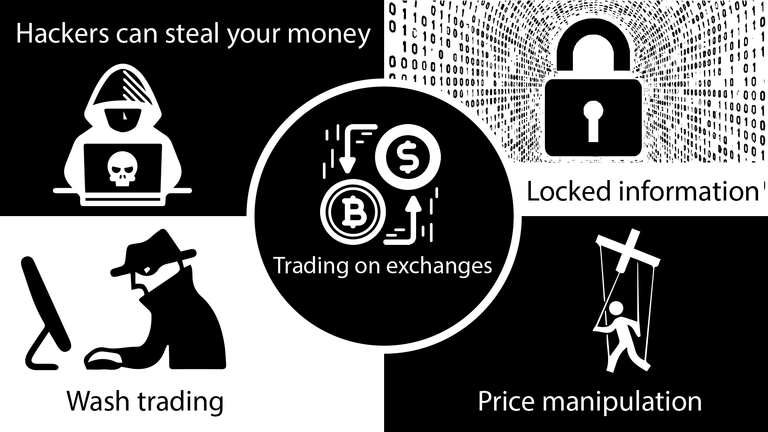
Below are descriptions of major hacks that have taken place in cryptocurrency exchanges till date .
• August 2010- Bitcoin hack, 184 billion BTC hacked (but was recovered)
Please do some research before you tell me there was only 21 million Bitcoin ever created. The link below can help with that.
https://bitcoinnews.com/the-day-a-hacker-created-184-4-billion-bitcoins/
• October 2013- Exchange: Silk Road Amount: $270,000,000 (171,955 BTC)
This was a marketplace that accepted cryptocurrency. Silk Road was nonetheless a place where people stored their money. When the FBI managed to track down the exchange's owner they have confiscated all of the BTC that was deposited on the website's account.
• March 2014- Mt. Gox exchange, $700 million stolen (850,000 BTC)
It is no surprise that by far the biggest hack in the history of cryptocurrencies happened to Bitcoin in the days of its infancy. The world's most popular exchange, MtGox, finally admitted its insolvency due to ongoing hacks. MtGox employees failed to protect the private keys of its wallet where it stored all the customer's deposits, and hackers would routinely drain this wallet into their own pockets. Everybody who had money stored on the exchange lost it. This amount of Bitcoin lost at a time was worth more than 6 billion USD.
• July 2014 - Exchange cryptsy: Amount: $9,500,000 (13,000 BTC and 300,000 LTC)
The attacker – famous for developing Lucky7Coin – inserted a Trojan malware into Cryptsy’s code so that he could access precious information and transfer cyber currencies – mainly bitcoin and litecoin – out of the exchange’s wallet.
• December 2014- Mintpal Exchange: Amount: $3,200,000 (3,894 BTC)
At one time the cryptocurrency exchange Mintpal was one of the top trading platforms. In the fall of 2014 customers were told Mintpal was going to have new ownership. The exchange was sold to a Moopay executive “Alex Green” who many believe was a shady scammer. Most likely the vulnerability already existed at the time of sale and the new owner just failed to detect and patch it. However, many suggest that it was simply an inside job and Alex Green "hacked" himself.
• January 2015 Bitstamp exchange: $5.1 million stolen (19,000 BTC)
Hackers sent a malicious file to exchange employees. One of the system administrators has neglected security rule #1: "Don't open files from strangers" and opened the file on the machine that had access to the exchange's BTC wallet. 19,000 BTC were stolen.
• February 2016 Bter Exchange: Amount: $1,750,000 (7,000 BTC)
Bter has been hacked before for a smaller amount of money in NXT equivalent. They haven't learned their lesson (as a number of other hacked exchanges don't) and got hacked again in 2015.
• June 2016- DAO (Decentralized Autonomous Organization), $50 million stolen (but recovered)
• August 2016- Bitfinex: $72 million stolen (120,000 BTC)
Bitfinex, the exchange most known for the creation of Tether and for sharing executives with the largest active ICO project, EOS, hasn't been infallible itself. Bitfinex advertised itself as having multisignature wallets for each customer. Somehow this multisignature technology didn't help them prevent losing 120,000 of their customer's bitcoins. Instead of repaying their customers from their reserves or going out of business, Bitfinex issued BFX tokens to the hacked customers and promised to buy back these tokens at a later date. Bitfinex is still in business and is doing well
• July 2017 - Coin Dash, $7 million stolen
• July 2017 - Veritaseum’s Ether wallet, $8 million stolen
• July 2017- Parity, $32 million stolen
• November 2017: Tether, $30.9 million stolen
• December 2017 - Nicehash Exchange: Amount: $60,000,000 (4,000 BTC)
Nicehash wasn't an exchange per se. It was a cloud mining service. It allowed people to rent out there computing power to those who wanted to be involved in cryptocurrency mining without having to invest in hardware. Turns out, these people ended up paying to mine all these coins in favor of Nicehash's hackers.
• January 2018 - Coincheck Exchange: Amount: $534,800,000 (523,000,000 NEM)
While Coincheck exchange managed to use cold wallets for its Bitcoin trading operations, they have neglected security measures on the up-and-coming Asian crypto, NEM. All of NEM deposits on the exchange were stored in one wallet.
• February 2018 - BitGrail Exchange: Amount: $195,000,000 (17,000,000 NANO)
Nano is an interesting new 0-fee cryptocurrency that's based on a block lattice architecture as opposed to using a traditional blockchain. As with everything new and shiny, people were eager to get their hands on it. Unfortunately, though, no reputable exchange would list the cryptocurrency until it reached some adoption levels. As such, a number of new exchanges emerged that allowed to trade NANO (at that time called RaiBlocks), and users were essentially forced to use insecure exchanges. BitGrail failed to secure its coin storage and an astronomical amount of money was stolen from it. Remember, using a centralized exchange is always a risk. Using a new an unproven centralized exchange is an even greater risk.
• April 2018 - CoinSecure exchange: Amount: $3,300,000 (438 BTC)
CoinSecure has reported that hackers managed to steal 438 bitcoin of their customer's money from exchange's wallets. Exchange owners have now filed a lawsuit against one of the exchange's employees, claiming that the hack was instead an inside job.
• June 2018 - Coinrail Exchange: Amount: $40,000,000 (in various tokens)
Despite Coinrail being one of the smaller exchanges in Korea, it was a tempting target, considering the amount of money that moves through it. The hackers recognized it as such and the new attack proves that even the smaller exchanges are not safe. In this case, the amount stolen is at $40 million, taken from the exchange in various altcoins.
The most-affected token is NPXS of which around $19.5 million was stolen. The tokens were originally issued by project Pundi X’s Initial Coin Offering (ICO). In addition to this, the hackers stole $13.8 million from another ICO project called Aston X, who are creating a platform that would help decentralize various documents.
Smaller amounts were taken from other cryptos, including Dent’s $5.8 million and $1.1 million that was taken from TRON.
• September 2018- Zaif Exchange Amount: $60,000,000 (5,966 BTC)
Japanese based exchange Zaif was hacked on September 14th, when access to one of their hot wallets was compromised. This resulted in $60 million in bitcoin, bitcoin cash and MonaCoin being stolen. Oddly enough the exact amount of stolen bitcoin cash is actually unknown, which does not inspire much confidence for Zaif to improve their security measures in the future.
A criminal case with local authorities has already been filed by Zaif, apparently due to the way unauthorized access to the funds was achieved
• October 2018 - MapleChange Exchange: Amount: $6,000,000 (913 BTC)
The small Canadian based exchange called MapleChange which was seeing a modest volume of around $67,000 USD per day since its launch in May 2018 claimed they were hacked or suffered a bug which resulted in all customer's deposited funds being withdrawn. They then made a strange claim on October 28th that they had to shut down and delete all their social media until an investigation was made into how this happened but also advised they were sorry it had to end like this
• November 2018 - Pure Bit exchange Amount: $30,000,000 (ICO + 13,000 ETH)
After raising over $30,000,000 in an ICO selling their tokens to create a cryptocurrency exchange in South Korea, Pure Bit defrauded their initial investors and customers by executing an exit scam, which started on November 9th. Over 13,000 ETH have been moved from Pure Bit's address, and they even went so far as trying to sell a portion of it on UpBit (a large local exchange in South Korea). Luckily, UpBit was made aware these funds were fraudulent and promptly froze their account. Their website is now offline, social media handles have been deleted.
That’s a lot of money and since cryptocurrency is not backed by any centralized entity, recovery and compensation aren’t usually possible. It is an unfortunate reality that where there is something of value, it will be targeted by opportunistic thieves. Especially in the wilds of the digital expanse of the Internet where the typical person is not trained in cyber protection, it is especially important to use available tools to keep your money safe.
WHAT FEATURES ARE YOU LOOKING FOR IN A COLD WALLET?
There are a lot of factors to consider when designing or buying a cold wallet for your cryptocurrency.
· Which cryptocurrencies do you trade? Bitcoin or altcoins? How diversified is your portfolio?
· How secure are your trading tools and devices and what is the security record of your considered wallet?
· how expensive is the wallet and what is the wallet associated costs?
· is the wallet UI intuitive and user-friendly?
· How mobile and accessible is your wallet? Is it difficult to keep and easy to lose?
· Does it allow you to make quick purchases or sell-offs whenever needed? What is its latency?
The various factors above were put into consideration when the Skycoin team designed and built its wallet called Skywallet.
FEATURES OF SKYWALLET
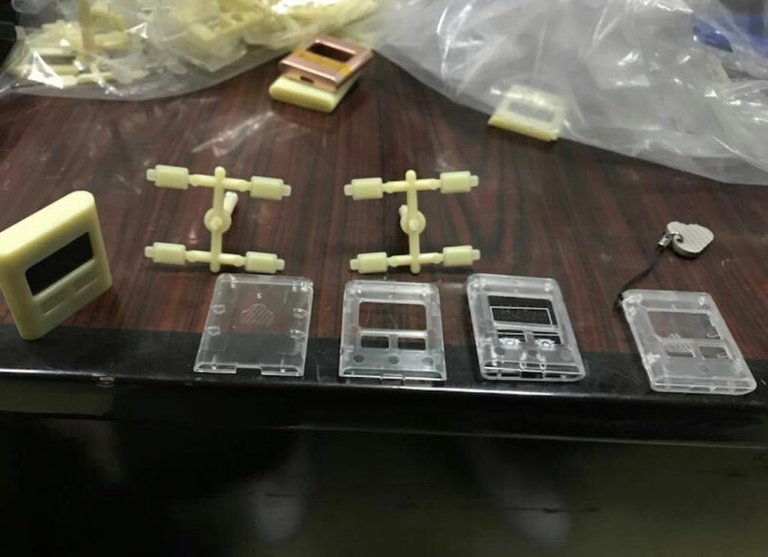
It took several months to work and develop the Skywallet and it is a beauty of a creation.
They looked at the various cold wallet in the market considering their advantages and disadvantages and came with a Wallet that simple to use for even noobs, secure and the cheapest hardware wallet that you will find anywhere in the space.
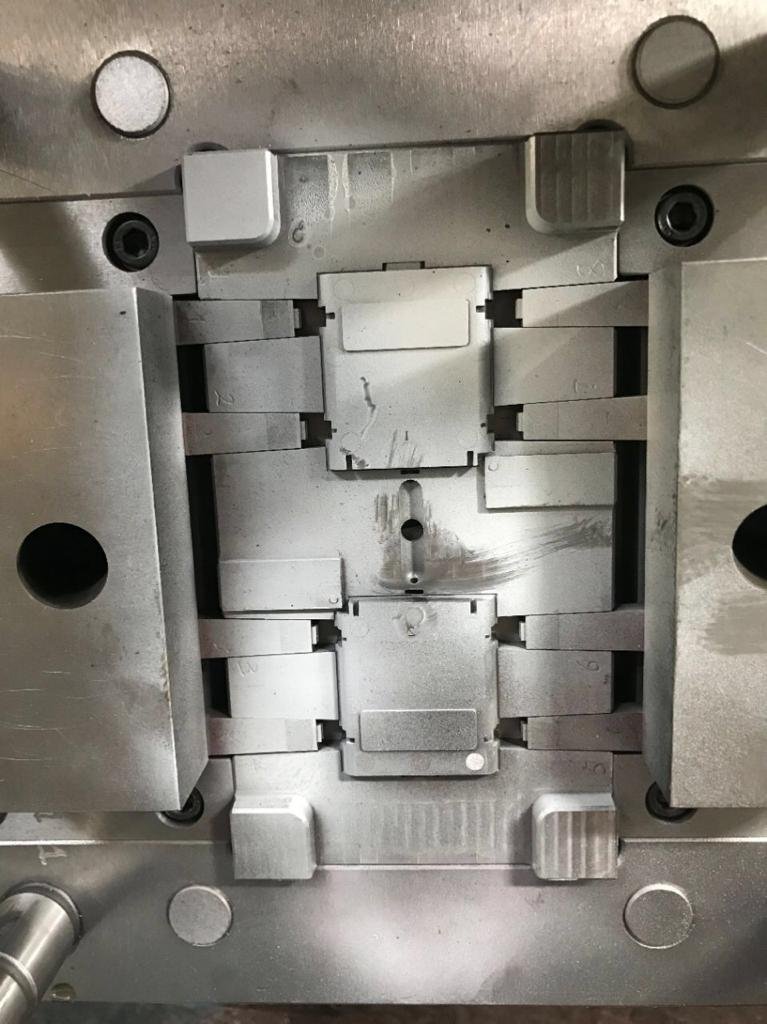
It also involved investment and purchase of heavy-duty CNC machine that could carve out models faster and with better precision by Skycoin research and development team .
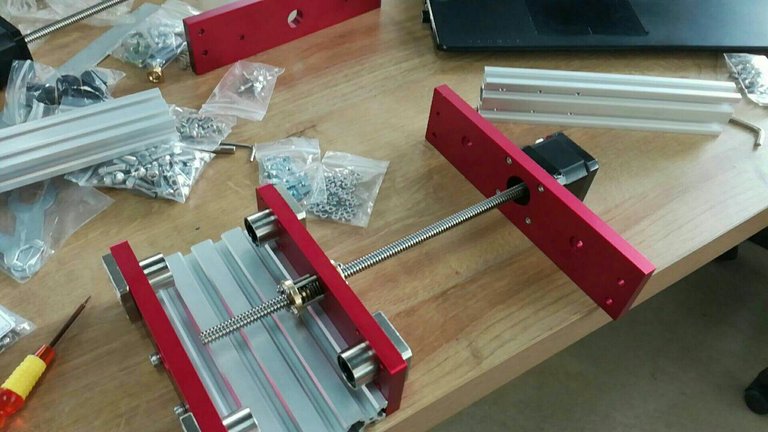
The final models were made with plastic injection molding, a manufacturing technique where a mold is made and filled with molten plastic .
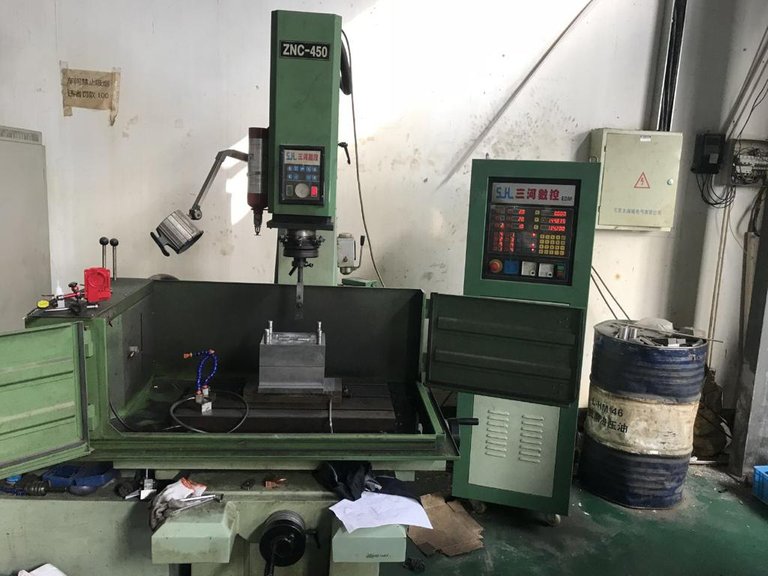
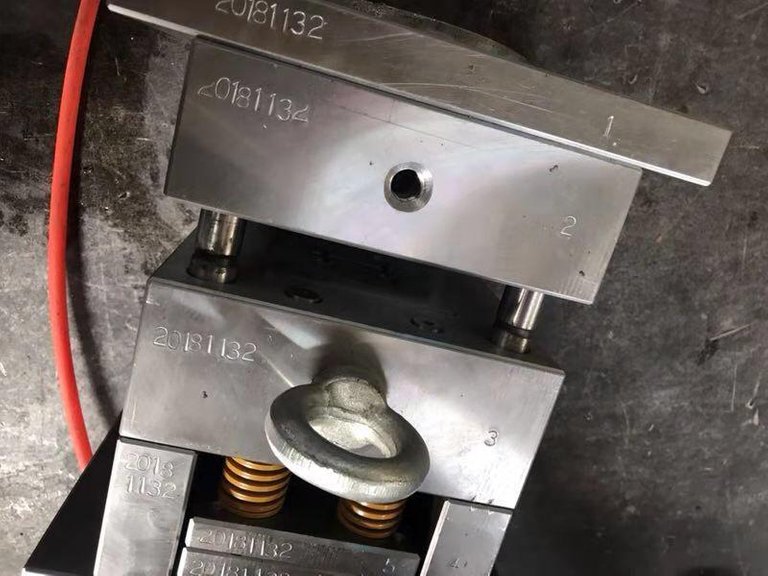
These were tested from time to time to be able to achieve simplicity , security and cost effectiveness to achieve the cheapest yet the most secure hardware wallet in the market today .
Skywallet’s final design consists of a UI screen, two buttons, and a micro USB 2.0 port. It’s packaged in a minimalist, stylish box and comes with an instruction manual, micro-USB 2.0 to USB cable, and a keychain.
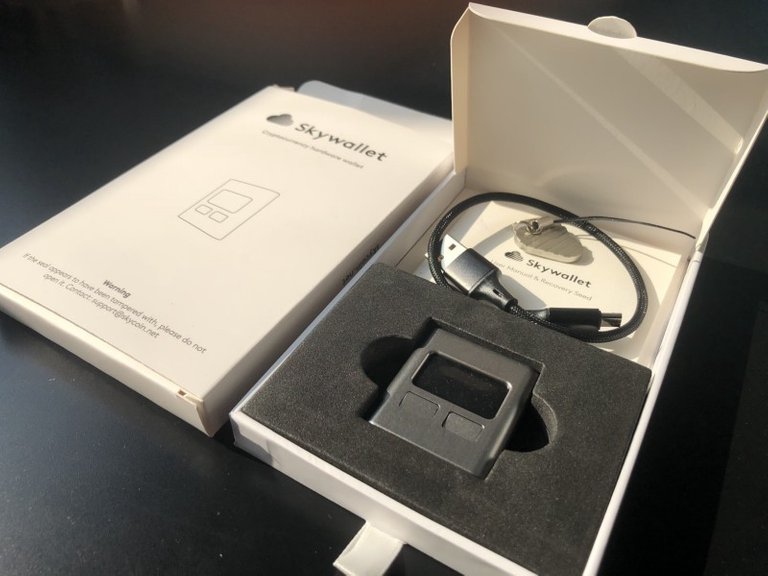
1-Ease to Use
The first and the most important feature of this crypto wallet is it’s easy to use interface. It takes only a minute to create a new account with this wallet. The users have to provide a username, password, and pin for this purpose. Not only this, you can easily restore the wallet lost in any device. The users can send and receive cryptocurrencies after logging in without any long verification process.
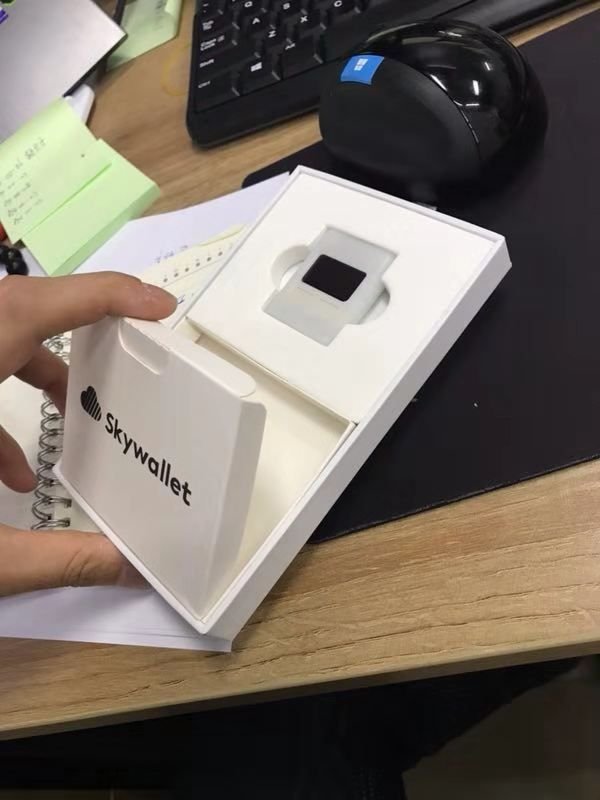
While other wallets feel like a timer or USB stick, Skywallet rounded sides feel good to hold in your hand and the satisfying click of its buttons add an extra dimension of tangibility to the abstract cryptographic values it stores for the keys.
2-Multi-Currency Support
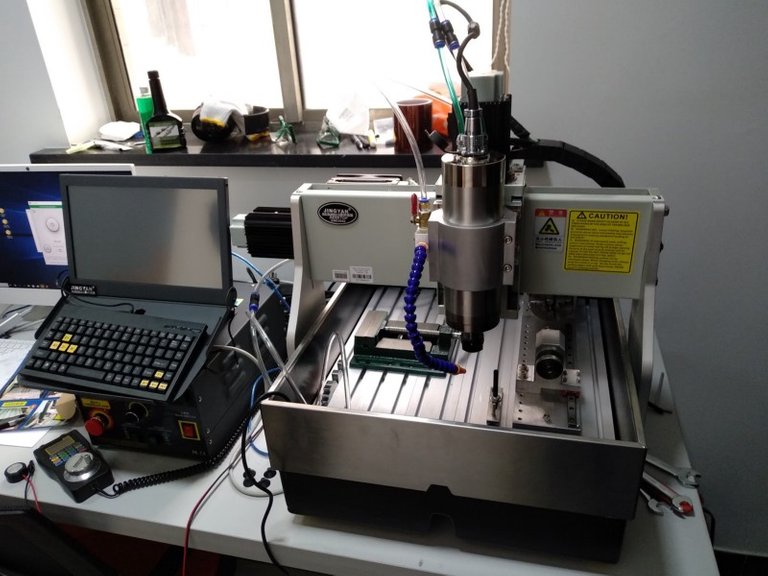
The next attractive feature of SkyWallet is multi-currency support. The wallet comes equipped with the latest blockchain that can even offer support for upcoming cryptocurrencies provided that the developers extend the support through a simple plug-in. The Wallet will Support Skycoin, Bitcoin, Ethereum and more tokens will be added over time
3-Security
Security is the most important concern of the users while using a wallet. SkyWallet is also one of the secure wallets because it offers also recovery code and phrase for account retrieval.

There is a feature that distinguishes the Wallet from all other Wallets. Apart from the dual chip architecture technology, the Wallet is being manufactured directly by the Skycoin team, and they are flashing the wallet themselves and the cases are welded together with a hydrogen torch; so they cant be modified.
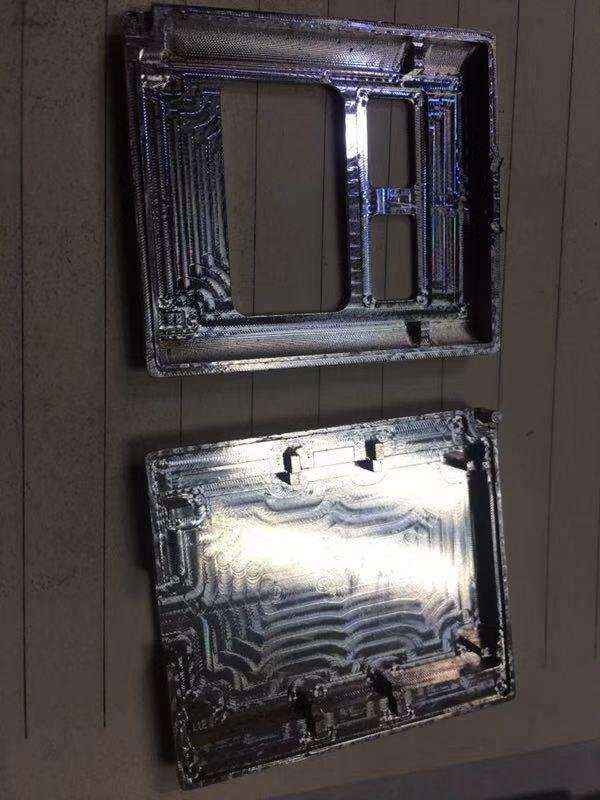
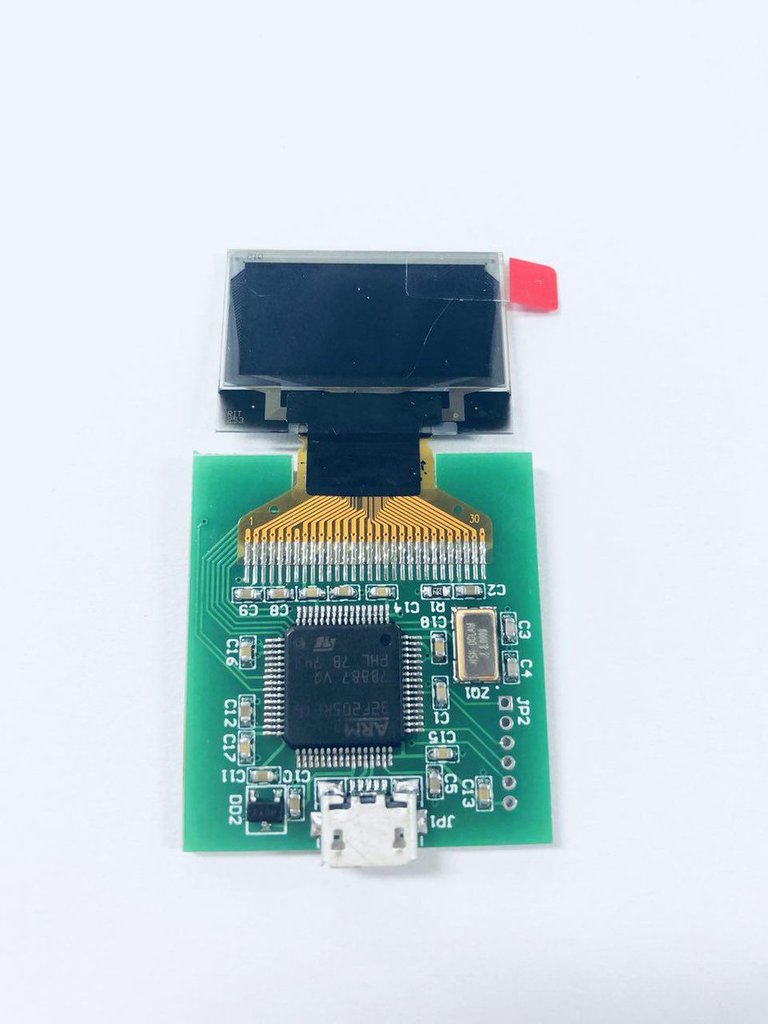
Any attempt to implant a chip will destroy the structural integrity and hence the wallet itself
- Cost
The Skycoin team has worked so hard to make sure that the wallet is affordable to all and sundry, as they want the cost not to exceed $30. That will make it the cheapest cold wallet out there with all the killer features and more you would come to expect in a cold wallet. In addition, because the Wallet will be accruing Coin hours for you, transactions for Skycoin will be free using this wallet.
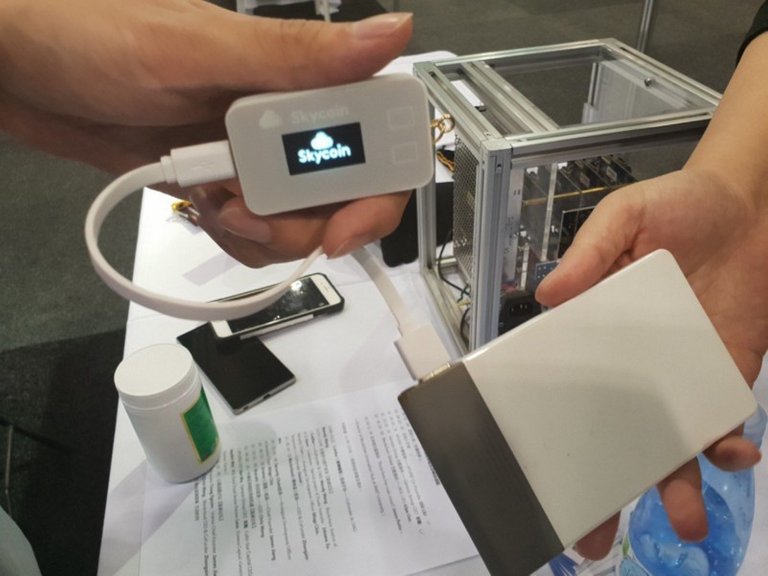
Whether Skycoin decides to work with a network of partners and distributors or sell it directly to consumers, you can rest assured that the security of the product cannot be compromised because of the process described in 3.
There is no arguing that cold storage hardware is the right way to go in regards to cryptocurrency security because other methods are constantly exposed to hacking attempts and cyber attacks which put your currency in jeopardy. The USB drive, a device people thought would be rendered useless by Cloud technology, has the flexibility and utility to serve as a protective hardware cold storage. The good thing is Skywallet is more than a USB stick .
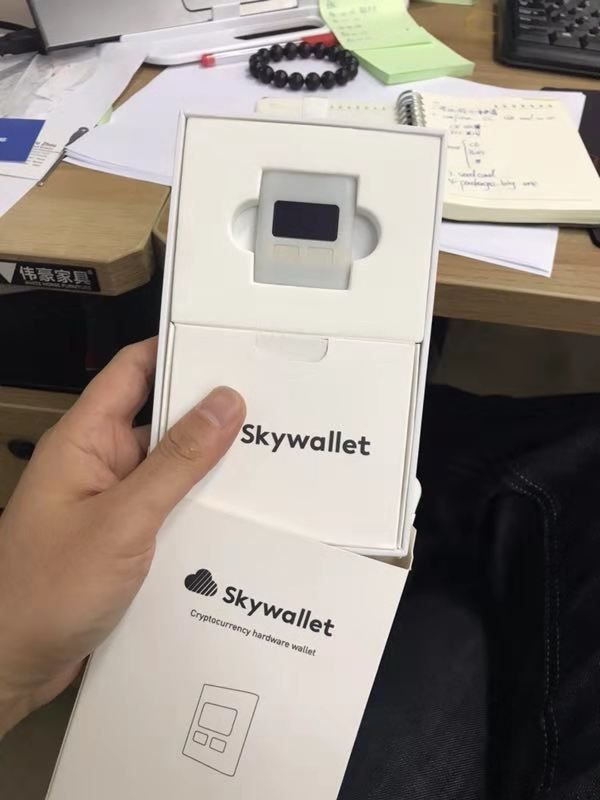
Skywallet is inexpensive, conveniently sized and highly transportable, and inconspicuous enough to mask their important load. They are superior to other hardware devices available because they are going to be widely available and purchased at minimal expense without long wait times or expensive shipping fees, all while performing the same function. Due to their size, they can easily and safely are put away in a drawer or closet until you need to access your Skycoin and other cryptocurrencies. Wise investors know that their money is only as safe as the third party companies they use can make them, so it’s important to utilize other mechanisms for increased security and safety of your investments. The mantra of cryptocurrency is: Diversify your assets, secure your key (outside of a third party), and use a hardware device like a Skywallet.
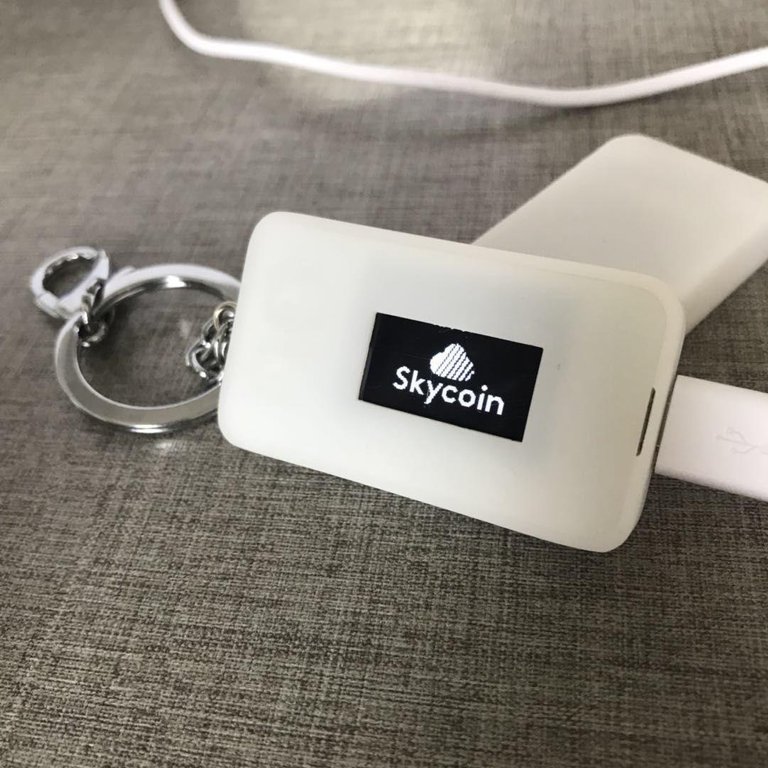
Subscribe to Skycoin mailing list to be informed as to when you can order a wallet. You can also sign up for a Skyminer with the link
https://www.skycoin.net/mailing-list/
You can follow this revolution at www.skycoin.net

Skycoin telegram at https://t.me/Skycoin
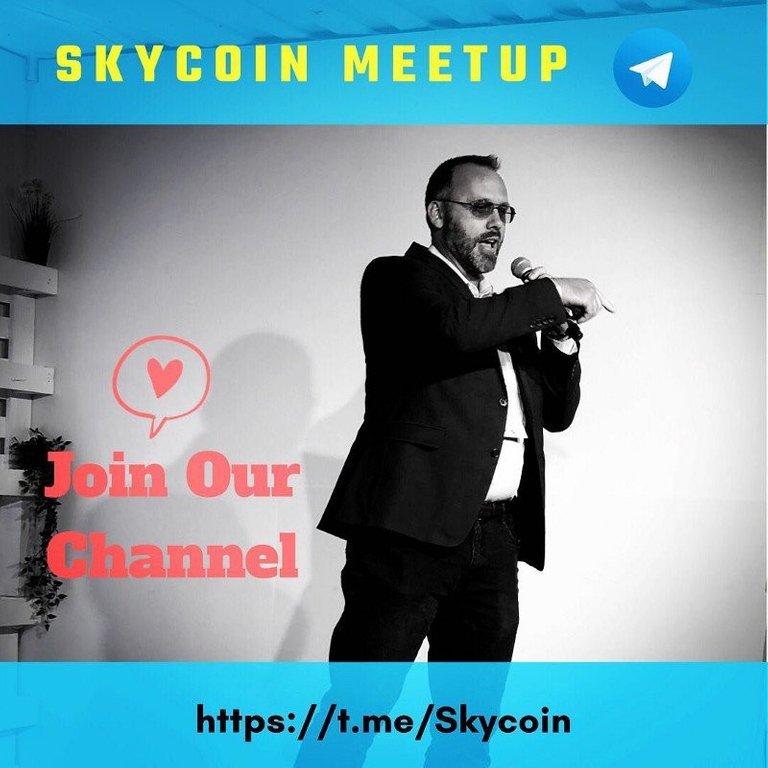
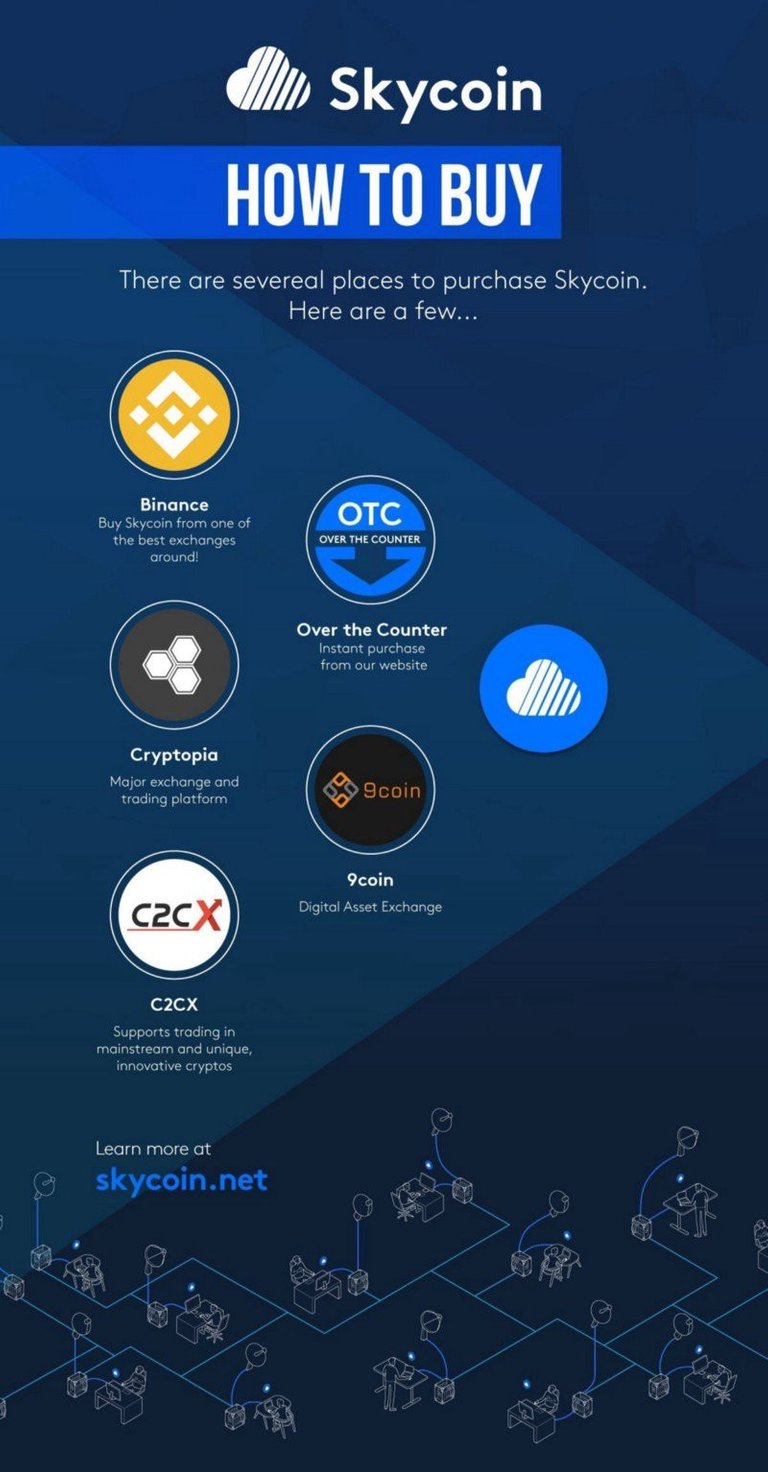 Buy Skycoin direct @ https://exchange.skycoin.net
Buy Skycoin direct @ https://exchange.skycoin.net
Facebook: https://www.facebook.com/skycoinproject
Twitter: https://www.twitter.com/skycoinproject
Reddit: https://reddit.com/r/Skycoin
YouTube@ https://www.youtube.com/channel/UCzLASufel2No4vSt4rudHSQ
Follow me on twitter https://twitter.com/bivins1
Hi! I am a robot. I just upvoted you! I found similar content that readers might be interested in:
https://rados.io/list-of-documented-exchange-hacks/